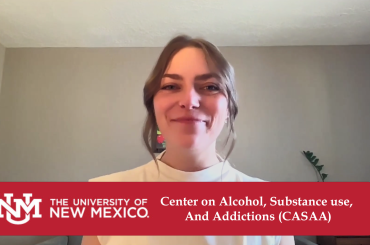It’s no secret that the morning after a night of drinking is less than pleasant. Maybe you wake up with that familiar pounding headache. Or your mouth is dry. Your stomach is roiling. You’re lethargic. Bright lights hurt. The short-term effects and aftereffects of alcohol on our bodies is undeniable. But even more worrying are the long-term effects.
This post will opens our series about how substance abuse affects your body. First up: the effects of alcohol on your brain.
Short-Term Impacts
As you drink, alcohol makes its way through your stomach lining and into your bloodstream, reaching your brain within five minutes. Effects can start to be felt after 10 minutes. As you continue to drink, your brain starts to react to the alcohol in your system. Northwestern Medicine lists these stages of inebriation:
Euphoria
As you begin to drink, your brain releases dopamine, which creates the pleasurable sensation most drinkers seek.
Depression and disorientation
Once blood alcohol content (BAC) exceeds 0.05, blood and body tissues begin to absorb the extra alcohol (leading to the sleepy or “heavy body” feeling some people experience).
Excitement
At the stage of legal intoxication (BAC 0.09 to 0.25), alcohol starts to impact the parts of your brain responsible for sight, speech, hearing, and motor function. This leads to slurred speech, blurred vision and a lack of muscle control.
Confusion
A BAC of 0.18 often manifests as disorientation, and may cause trouble standing. The alcohol also impacts the part of your brain responsible for making new memories – it’s why people call this getting “blackout drunk.”
Stupor
A BAC of 0.25 or higher leaves many people at risk for alcohol poisoning, a condition necessitating medical treatment.
Coma
At a BAC of 0.3 or higher, your lungs may have trouble functioning. Some people become at risk of falling into a coma.
Death
A BAC of 0.45 or higher may result in your brain failing to direct your body to function properly, leading to death.
Long-Term Impacts
The short-term implications of alcohol consumption might concern you, but many suffering from alcohol dependency or abuse may never reach BAC levels high enough to cause immediate damage. Instead, they find they need booze to produce the sensations experienced at a lower level of inebriation. But don’t be fooled. The long-term effects of alcohol abuse on the brain are just as harmful as the short-term effects. Put simply: heavy drinkers (those who have been drinking over a long period of time) will still damage their brains, even if they’ve never gotten drunk enough to land themselves in the hospital.
In 2001, the National Institute on Alcohol Abuse and Alcoholism issued a report on how sustained alcohol abuse impacts the brain.
Long-term abuse was found to:
- Create deficiencies in cognitive functioning. Most notably, abusers struggle with short-term memory loss and visuospatial abilities (the ability to image objects that aren’t in front of us).
- Reduce brain volume. The brain becomes smaller and less dense (the same thing that happens when we age).
- Impede a person’s ability to form any new memories at all. Note: it’s uncommon. This rare effect is also called Wernicke-Korsakoff syndrome, a type of dementia.
- Worsen a person’s depression.
- Change a person’s personality. While no one knows exactly why it happens, brain damage from alcohol abuse can also alter the parts of the brain that affect personality.
- Reduce life expectancy. A study published in Lancet in 2018 found that people who consume 10 drinks a week or more live one to two years less, on average, than people who consume less than 10 drinks. The study also found that life expectancy for people who consume 18 drinks a week or more to be four to five years shorter.
These effects aren’t inevitable, and not every person experiences them. But they demonstrate the invisible damage alcohol can do to your body. The good news? Research shows that the brain can heal itself once the body has detoxed alcohol from its system, even after years of abuse. Scientists are still figuring out how regeneration is possible.
What About Me?
Whether you’re in addiction recovery, or just beginning the process, it’s important to seek out treatment for alcohol addiction (or Alcohol Use Disorder). Make sure to also find social support to guide you. And if you’re unsure whether or not your alcohol use is a problem, check out our Getting Started Guide to help you determine you drink to excess.
Still not sure where to begin? Sign up for In The Rooms for free, and check out the wealth of resources we have to offer: online peer meetings, addiction recovery community and more!
Sources:
“Drinking more than five pints a week could shorten your life, study finds”
“Cognitive Impairment and Recovery From Alcoholism”
“How Alcohol Impacts the Brain”
“Alcohol’s damaging effects on the brain”
“Here’s What Really Happens to Your Brain When You Drink Too Much Alcohol”







